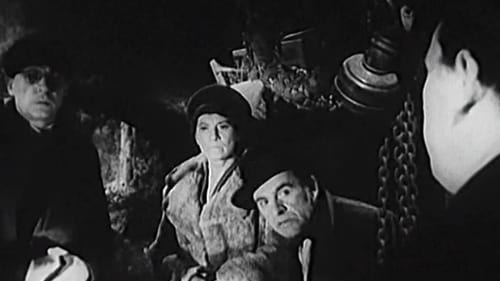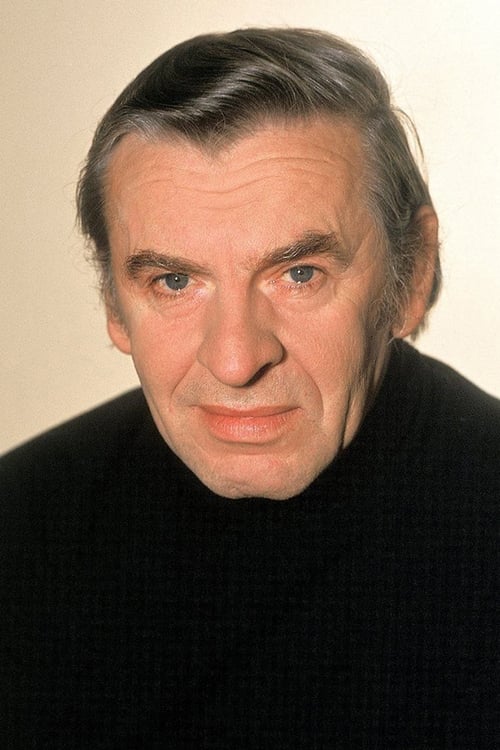
Jozef Kroner
Рождение : 1924-03-20, Staškov, Czechoslovakia
Смерть : 1998-03-12
История
Pochádza z dvanástich detí. Začínal ako robotník v Trenčíne, neskôr ako vedúci dielne v Považskej Bystrici. Popri práci sa venoval ochotníckemu divadlu. Začínal v Armádnom divadle v Martine (1948 - 1956). Od roku 1956 pôsobil v činohre SND v Bratislave až do roku 1984, keď odišiel do dôchodku. Účinkoval v mnohých televíznych filmoch a seriáloch - Kubo (1965), Živý bič (1966), Rysavá jalovica (1970), Ruže a sneh, Vôňa remesla, Slovácko sa nesúdi (1978, 1984), Sváko Ragan (1975), Nech žije deduško (1978). Je autorom kníh: Herec na udici (1970), Herec nielen na udici (1974), S kamerou a s udicou (1979),Neobyčajný testament (1982) a O rybke Beličke (1983). O jeho živote a tvorbe nakrútil režisér Fero Fenič tv. film Trate Jozefa Kronera (1987). Na základe hlasovania slovenských filmových novinárov v Ankete 2000 sa Jozef Kroner stal slovenským hercom 20. storočia. Keď bol na dôchodku, rád hubárčil. Nesmierne miloval Liptov, rád sa prechádzal na Podbánskom. Bol ubytovaný, väčšinou, u svojho veľmi dobrého priateľa Milana Lehotského v Liptovskom Hrádku na ulici Hradnej ( v tej dobe Leninova ulica ). Spolu chodili aj na dobré slovenské pivo do krčmy Svieženka ( dnes Esspresso Svieženka ). Naposledy tam bol v roku 1995.
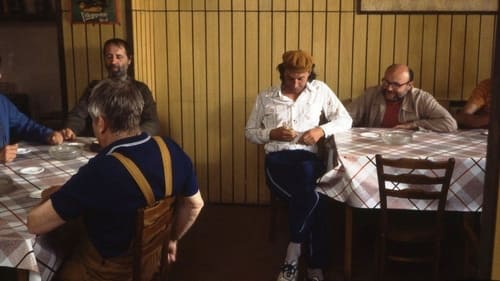
Košťál
Bohus is indolent and spends his days drinking brandy. One day he finds he has inherited a brickworks, several shops and a five-star hotel. Bohus sets out to tour his new empire, insulting everyone on the way.

Református pap
A man who leads a lonely existence with his young daughter accidentally gets involved with a robbery before a manhunt ensues.

Georg Henih
А dying man reveals to his young friend, a child of 8, the fairy world of music.

Grandfather
Occupied by family problems, a 13 year old Vojto takes every responsibility around the house. One day while on a train to school, he sees this girl, Kajka, and falls madly in love with her. Despite his busy life, he decides to win her heart by any means possible.

Nyáry György
This sarcastic drama is taken from the popular Hungarian novel by Tibor Dery. A terminally ill writer (Jozef Kroner) of national prominence watches as family and friends gather like vultures for his imminent demise. Relli (Alexander Bardini) smiles and pretends to be the writer's friend as he tries to get his hands on an unpublished manuscript. The opening scene is the highlight of the film. While the dead writer is being laid to rest in a national funeral, he emerges from the coffin and walks into his own grave while the mourners flee in terror.

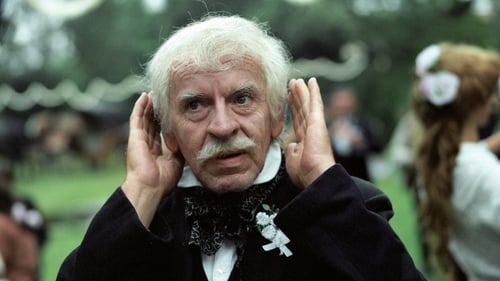
Martin Pichanda
A family saga taking place mostly in a small Slovak village over a period of thirty years (1887–1917). The first part captures the life of Martin Pichandu in the development of his craft, masonry; in the second part, his son is center stage living in a period of socio-political crisis, which ultimately results in the first World War. After originally airing on Czechoslovakian television in 1983 as a four-part 226-minute mini-series, this production received a 163-minute theatrical release in 1984.
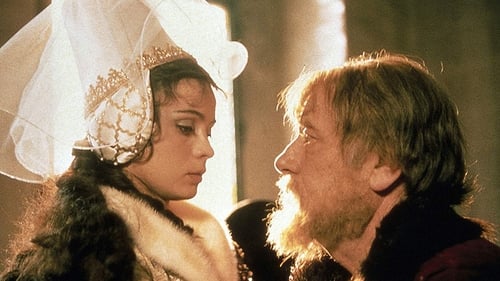
Šašo
Когда король спросил у своей младшей дочери, как она любит его, то услышал в ответ: «Больше, чем соль». Молодую женщину изгнали из королевства за столь неожиданный ответ. Она познакомилась с добрым духом, который превратил всю соль королевства в блестящее, но совершенно бесполезное золото…

Sablica
Когда принцессу похитил Король подземного мира, на ее поиски отправился смелый принц. Ему удалось найти девушку, но его братья объявили, что принцесса спасена ими...

Szombathy, osztályfõnök
A Budapest high school in the beginning of the 1960s. Dini suffers the torments of adolescence. His father had to leave Hungary after the uprise in 1956, and since then Dini's mother has had to take care of her two sons on her own. A friend of Dini’s father, Bodor, is released from prison and moves in with them. Dini and his brother are far from happy about this intrusion on their family life.
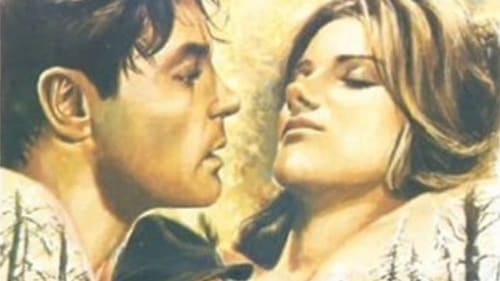
Marek
A hunting party arrives at a lodge in the Tatra mountains in Slovakia, where one woman in the party had “accidentally” shot and killed her first husband some time ago.
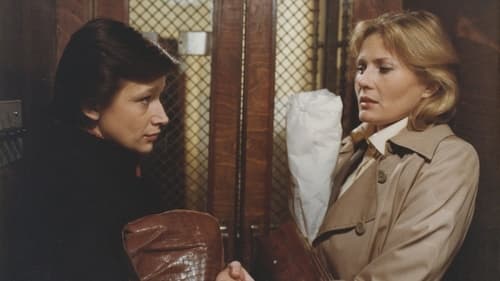
Comrade Erdõs
Действие фильма происходит в Будапеште в 1958 году. Эва-журналистка, из-за критических статей, направленных против существующего строя, она два года не могла найти работу по специальности. Устроившись на работу в редакцию,она знакомится с Ливией, женой офицера госбезопасности.Между Эвой и Ливией завязывается нетрадиционный роман. Это рассказ о двух женщинах, завязавших лесбийские отношения и вступивших в конфликт с общественной и политической нетерпимостью.
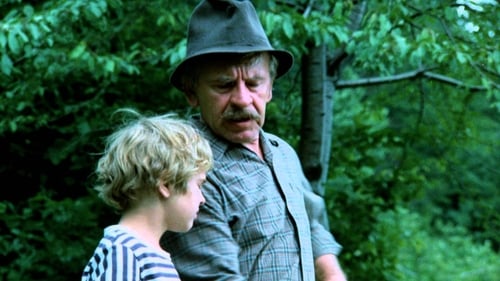
Otec

Satire from the makers of hungarian classic Love (1971): director Károly Makk and writer Tibor Déry. Made for TV.

Lovely overview of traditional Slovak Christmas.
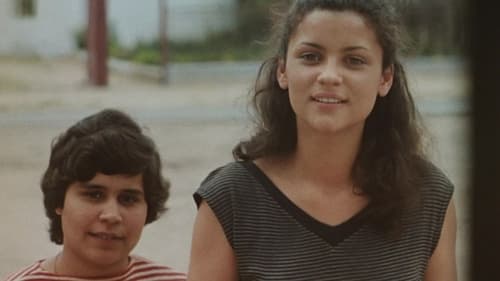
Marcel (voice)
Jakub, a dreamer and budding magician, juggles between parcels and services rendered to the villagers. His eyes cross that of the beautiful gypsy Jolanka. Together, they will try to live a first and big love, despite the pressure of their respective communities.

Pacho
A funny outlaw tale inspired by traditional folk humour. Pacho is no ordinary outlaw. He detests injustice and feudal oppression and he copes with each troublesome situation with the help of his cleverness and wit.

Dialogue
Who could forget the Favorites figure Svákov Ragan in acting creations neopakovatel'ného Jozef Kroner? Three-part television film Sváko Ragan, created according to stories Ela Sándor already at its first introduction many years ago, soon won favor with audiences. Brought not only good fun, but also an attractive view of a world Myjavská site with many rustic Alpine traditions and characters and witty dialect used, especially Myjavský and Brezovský. Above all this, however, it is dominated by the ability to invent Svákov Ragan was even in the most uncomfortable situations ... Brezovskí tanners have been known not only to the quality of its products, but ischopnosťou their products at fairs successfully foreground. Highly after the fairs and markets in the near and distant surroundings Birch Nachod and Sváko Ragan and no wonder that their business has seen wandering the lot but cheerful and made many hilarious but also less hilarious "deal" ...

Sváko Ragan
Who could forget the Favorites figure Svákov Ragan in acting creations neopakovatel'ného Jozef Kroner? Three-part television film Sváko Ragan, created according to stories Ela Sándor already at its first introduction many years ago, soon won favor with audiences. Brought not only good fun, but also an attractive view of a world Myjavská site with many rustic Alpine traditions and characters and witty dialect used, especially Myjavský and Brezovský. Above all this, however, it is dominated by the ability to invent Svákov Ragan was even in the most uncomfortable situations ... Brezovskí tanners have been known not only to the quality of its products, but ischopnosťou their products at fairs successfully foreground. Highly after the fairs and markets in the near and distant surroundings Birch Nachod and Sváko Ragan and no wonder that their business has seen wandering the lot but cheerful and made many hilarious but also less hilarious "deal" ...

Varga János

1943. Captain Ian Nalepke, Chief of Staff of the Slovak regiment, bearing protection of military facilities in the small town of Belarus contacts the partisansand passes to them the obtained information about upcoming operations of the German forces.
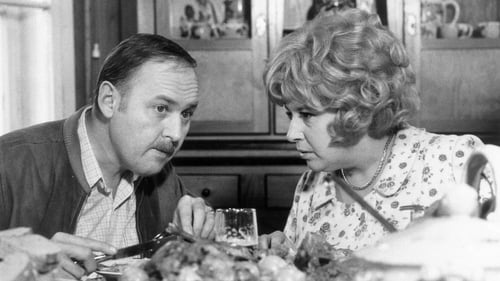
Kastl is a hairdresser but his real passion is his second job as football referee. This job takes all his free time and makes his wife very nervous.
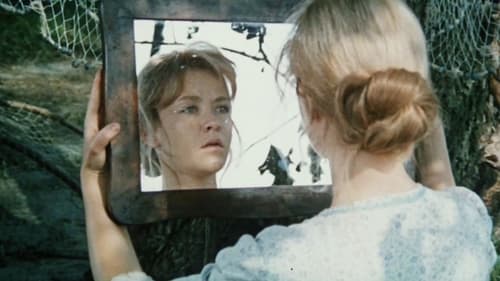
Koktavý
A fisherman saves Anada, a woman adrift, from drowning. He takes her to his home, and protects her. Eventually, she occupies a larger place than was to be expected. He commits adultery with her, but his own wife seems to be in love with the strange young woman.

Adam Krt

Narrator (voice)

Trusockij

Tatár (voice)

Old man (segment "The Sixty-Year-Olds")
"Using the same, three times repeating dialogue – dramatic conversation between man and woman – Jerzy Skolimowski from Poland, Slovak director Peter Solan and Czech director Zbynìk Brynych shot three different stories. The result was an extraordinary experiment in the world cinema, which we can call an insight in the relationships of men and women of different age groups, an analysis of love and marriage of those who are at the beginning, in the middle or going towards the end of their life."

Franz
Мужчина в костюме приходит из леса в город и рассказывает встречающимся ему людям свою историю. Каждый раз его слова звучат по-разному, и одни и те же участники очередной истории совершают действия, характер которых совершенно иной, чем в прошлом рассказе. Вы скажете, что он лжец. Это слишком простое объяснение всему тому, о чем показывает режиссер в этой картине.

Clown
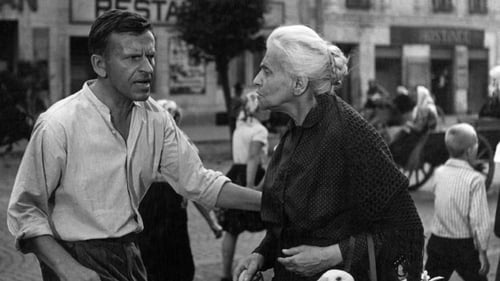
Antonin 'Tono' Brtko
В годы Второй мировой войны словацкому плотнику Тоно Бртко в рамках программы ариизации от свояка достаётся небольшой магазин старой еврейки Розалии Лаутманн, торгующей пуговицами. Тоно прекрасно понимает, что свояк подсунул ему совершенно бедный магазин и никакой прибыли от него ему не видать. Но он боится объяснить это жене, из-за её свирепого характера, и также не может объяснить старухе Лаутманн, что теперь он является хозяином её имущества. В 1965 году фильм удостоился премии «Оскар» в номинации «Лучшая картина на иностранном языке», а год спустя Ида Каминска получила номинацию на премию киноакадемии за Лучшую женскую роль второго плана. Фильм также получил премию «Золотой глобус» и был отмечен специальной наградой на Каннском кинофестивале.

Kubo
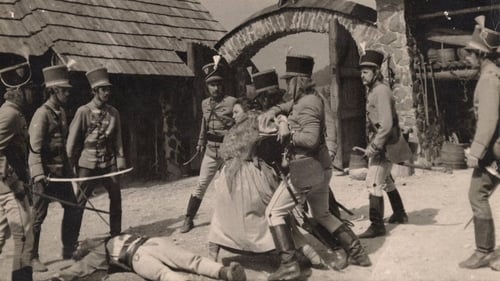
Father Urhocik
О национальном герое словацкого народа Юро Яношике, поднявшем в XVIII веке знамя борьбы за счастье и свободу простых людей.

Valentin Kubis
По одноимённой пьесе Петера Карваша. Декабрь 1944 года. Молодой партизан Дюрко Кубиш бежит из фашистского плена и прячется в доме родителей, которые сотрудничают с оккупантами. Родные Дюрко знают, что если его обнаружат в их доме, то будет расстреляна вся семья. Но они также надеются, что в случае разгрома фашистов Дюрко вспомнит об оказанной ему помощи. Однако страх перед фашистами побеждает, и родственники решают выдать его. Мать, желая спасти сына от смерти, рассказывает о нём священнику и просит помощи. Но священник выдаёт Дюрко фашистам, и его арестовывают, когда вся семья отправилась в церковь на мессу.

Uncle Kosalkula
Отца маленького Ергуша убили жандармы. Чтобы помочь матери, мальчик нанимается батраком, потом уходит на фабрику, в город, но, не выдержав жестокой эксплуатации, надеясь стать свободным и независимым, возвращается в горы, где когда-то сражался его отец за благо народа.

Jožko Púčik
Словацкому чиновнику поручили отнести в банк крупную сумму денег, но по ошибке дали пустой конверт. По обвинению в воровстве его заключают в тюрьму и заставляют признаться в преступлении.

Jakub Krvaj, bývalý kat
This dramatic story is situated in the town of Trnava of the 18th century. Painter Peter paints an altar-piece of the Martyrdom of St. Juliet and his model is a young girl. This is much disliked by the clergy who unjustly accuse the girl of witchcraft. She is saved from being burnt at a stake by the students of the Trnava University. (IMDb)

Background Officer
Episodic film consisting of three satirical shorts ('Smutný káder', 'Typický prípad' and 'Vel'korysá kampaň') comically exposing the shortcomings of society. In the interval between each short, a committee recognising themselves in the characters on screen, voice their approval or disapproval of each film.

Sásik
Комедия по мотивам одноименного рассказа Янко Есенского. История разворачивается в 1910 году в провинциальном словацком городке, живущем в предвкушении последней подготовки к балу. Однако прибытие воинской части переворачивает весь город с ног на голову. Некоторые местные кавалеры, которые беспокоятся о своих невестах, хотят отложить мероприятие в последнюю минуту, но мэр города и командир полка, Оберст фон Румплай, в конечном итоге решают, что бал должен состояться…

Slovak movie is based on the novel by the prominent representative of Slovak prose František Hečka, who was in 1952 awarded the State Prize. The novel and the movie successfully capture the development of Slovak village after the liberation in 1945. The narrative is centred around the characters of the old Púplava, who after the liberation begins to organise a new village life, and his struggle for the construction of settlements Mrzáčky, burnt by the fascists. It is centred around the conflict, greatly reflecting the situation of the countryside at this time: the conflict between the rural poor and the rural rich. In the movie, a rich personal and emotional life of other heroes pulsate besides the main storyline. The movie ends with the final defeat of the reactionary forces by Communists in February 1948, taking over all power in the state of workers and peasants. - "The Wooden Village" is released in celebration of the 7th anniversary of the Communist February Victory.

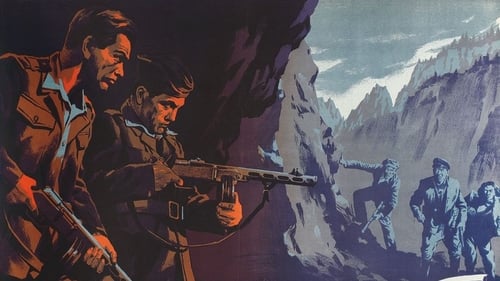
shoemaker
Психологическая драма о борьбе чехословацкого Корпуса Национальной безопасности и СНБ с "бандеровскими убийцами и их пособниками из церковных кругов". Действие фильма происходит через два года после окончания Второй мировой войны. В картине остатки украинского подразделения Повстанческой Армии (ОУН) под командованием Бурлака и его верной подруги Офелии, разбитые после проведения операции «Висла» в Польше, пытаются через территорию Словакии прорваться в Западную зону безопасности, уйти в Западную Германию, но попадают в расставленную западню...
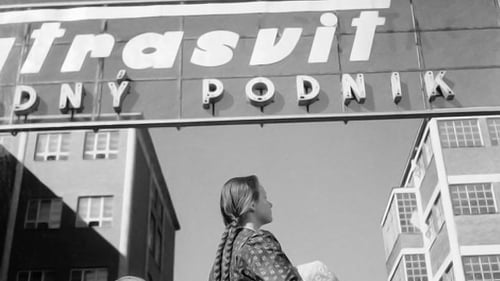
Jozef
Комедия о молодой деревенской девушке, которая на большом заводе получает новый жизненный опыт. Она потихоньку привыкает к новой обстановке и новым людям, а деревенская наивка становится молодой женщиной с новыми идеалами...














